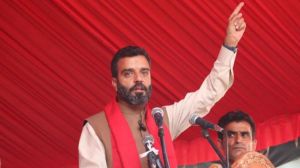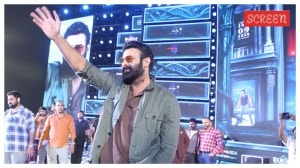To be continued
Supreme Court hands the Gujarat SIT report to the trial court,as it should.
The Supreme Court has announced that its monitoring of the Gulbarg Society case has now ceased,and that the case would now be handed over to a magistrate,who would frame charges and refer it to a sessions court. This is exactly as it should be,in terms of legal procedure the Supreme Court is a constitutional court,and cannot conduct a trial.
In 2008,it had taken the extraordinary step of setting up a special investigation team SIT,responding to the complaint of Zakia Jafri,whose husband,former Congress MP Ehsan Jafri,was killed in the 2002 riots,and the National Human Rights Commission. Jafri had pleaded that Gujarats police,administration and lower judiciary were complicit in the denial of justice. The SIT,headed by a former CBI director,conducted its own investigations Chief Minister Narendra Modi,one of the 63 accused,was questioned last year and presented a confidential report to the Supreme Court. Not fully satisfied with those findings,the court asked amicus curiae Raju Ramachandran to go to Gujarat and fill in some of the gaps. His report has also been submitted to the Supreme Court in a sealed cover. As the case now moves to the trial court,this report will form the body of evidence for the magistrate,who can then choose the next course of action,ask the SIT for further investigation,or take a decision either way. By refusing to slant the proceedings either way,by indicating its opinion of the report,the Supreme Court has been entirely correct.
So far,the process has been exactly in step with the legal norm. Despite Narendra Modi tweeting God is great,and the BJP already spinning it as a vindication of the Gujarat CM Sushma Swaraj tweeted that Modi had now passed an Agnipareeksha and truth had finally triumphed this decision means nothing in substantive terms except that due process has been followed. Of course,every step of the investigations in the Gujarat riot cases has been fraught with heavy hopes and fears. Nearly a decade after the communal violence that scarred the state,the legal process has been painful and protracted and in that interim,the actual horror of Gujarat has often been reduced to a set of strongly held intuitions rather than evidence and conviction. However,those must not distract from the patient labour of finding answers the Gulbarg Society case is now with the trial court,and it will be tracked by everyone invested in ensuring a full and fair accounting for the riots.
- 01
- 02
- 03
- 04
- 05































